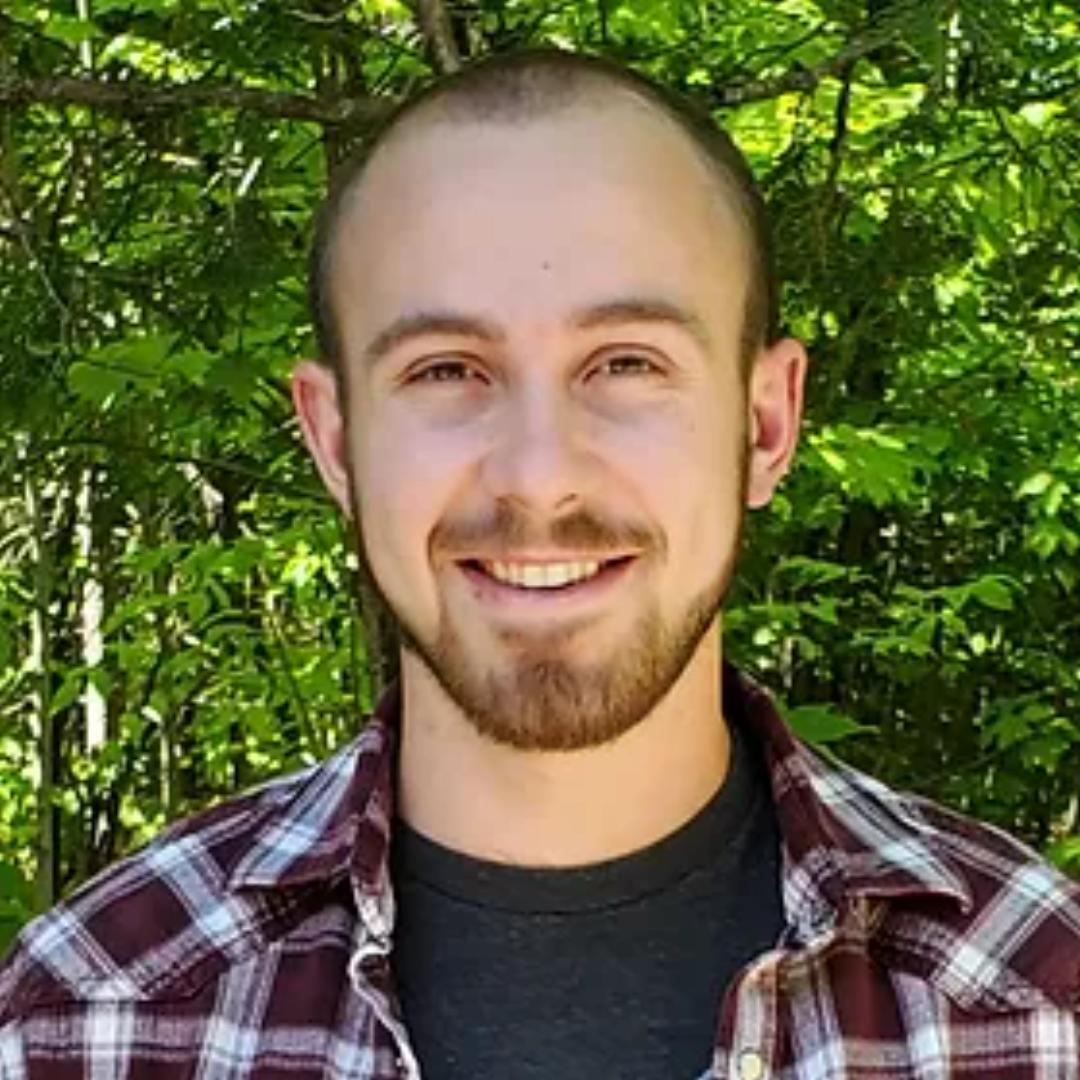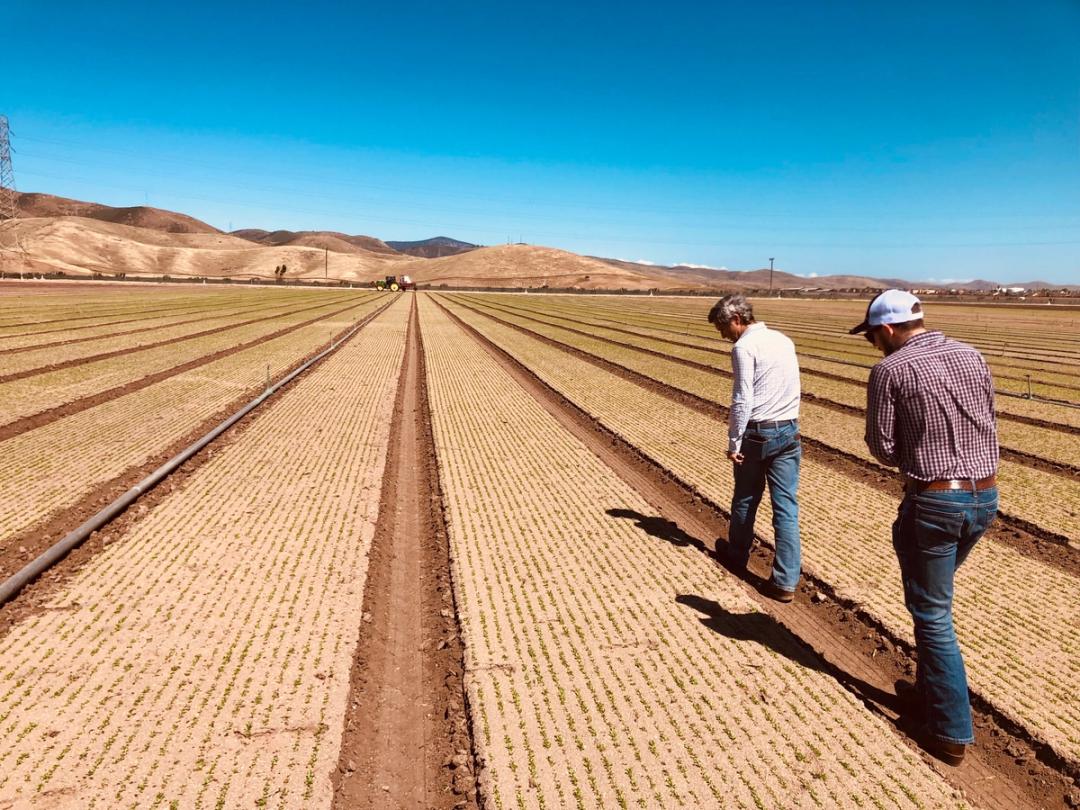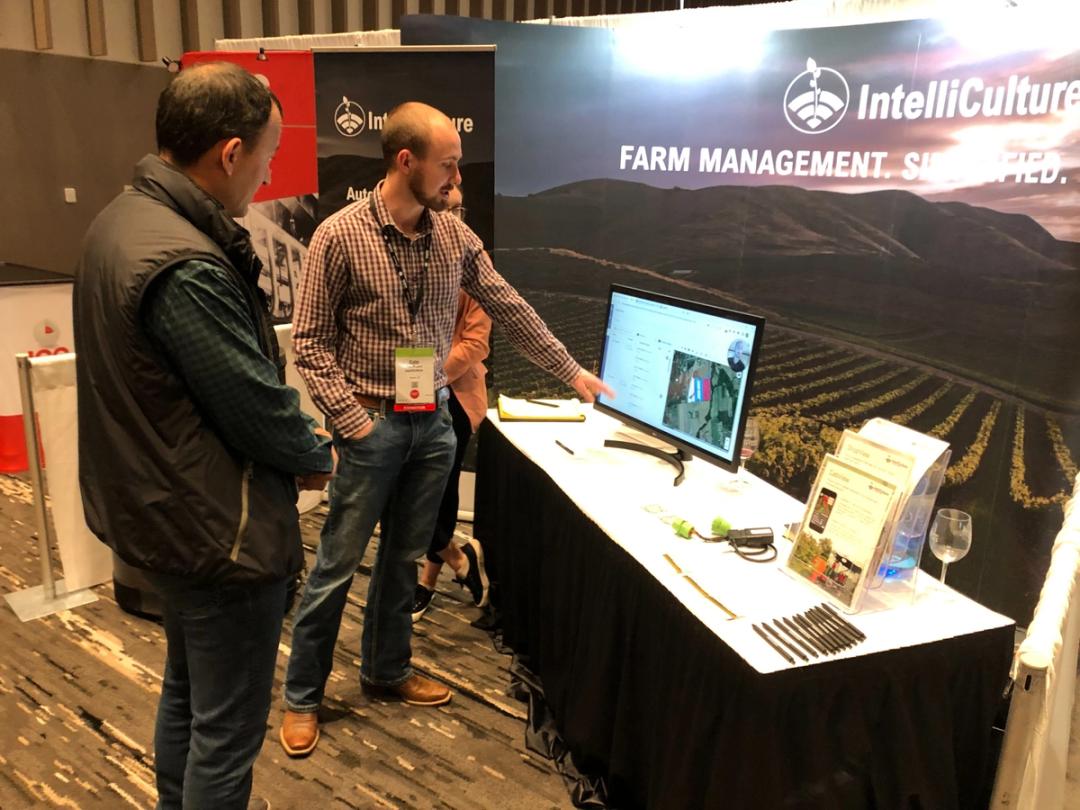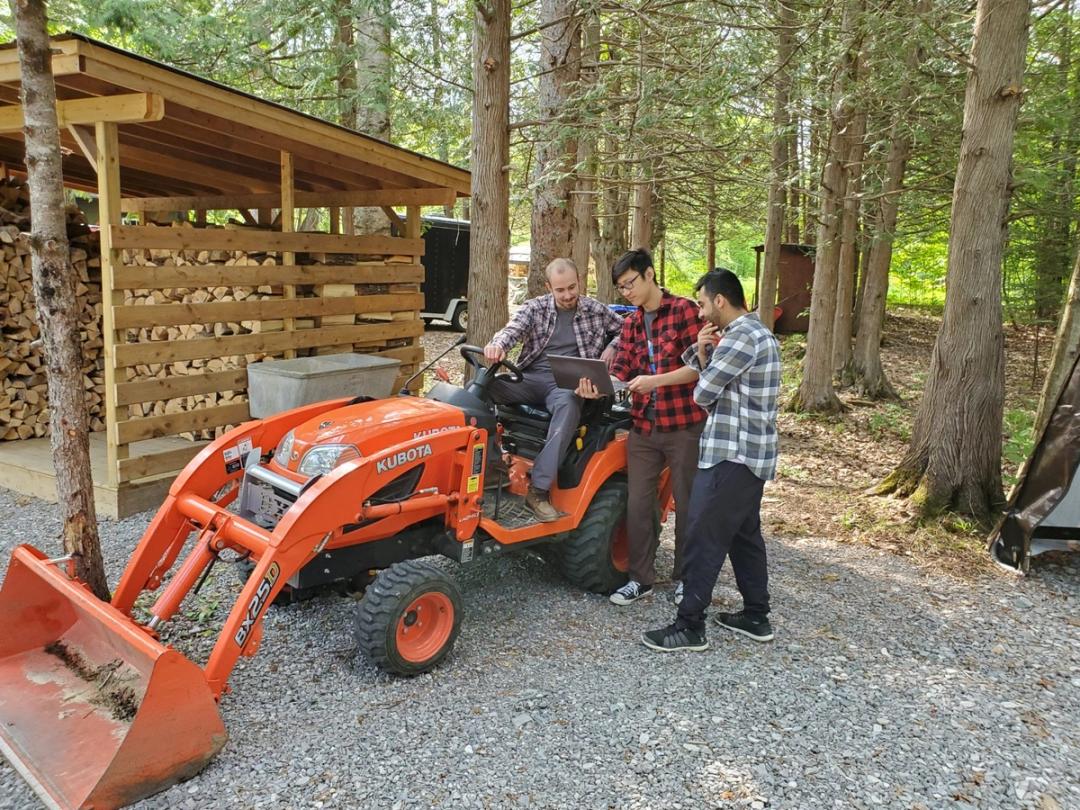Meet Cole Powers
Engineer and Entrepreneur
Cole Powers is a mechanical engineer turned entrepreneur. He is the co-founder and CEO of an ag-tech company called IntelliCulture, which offers an innovative farm management software that addresses three crucial issues in farming: labor availability, pest prevention, and machine safety.
STEM to the Sky
Jun 27, 2023
- Were you always interested in STEM growing up?
- What was your inspiration behind starting IntelliCulture
- What is the most significant learning curve you have had to overcome
- What is the most exciting thing that you are currently working on
- Could you walk us through a typical day in your life
- What makes IntelliCulture different from other ag-tech companies
- What surprised you the most when starting IntelliCulture
- What do you enjoy the most about your role
- What are some future advancements you think will happen in the field
- What advice would you give to a student who is interested in entrepreneurship
- What is one thing you wish someone had told you before you became an entrepreneur
Were you always interested in STEM growing up?
I definitely had other interests [other than entrepreneurship] when I was younger. I originally studied mechanical engineering, which was my degree at the University of Waterloo. Prior to starting IntelliCulture, I thought that I wanted to go into the engineering field. I was always interested in the idea of ideation, and I thought intrapreneurship would be for me—doing innovative engineering work there in a large organization. I definitely never envisioned myself in the business capacity with the CEO role of a startup company, but I found that I gravitated towards where I found the most interest in my work, and that tended to be working with our customers, trying to figure out and solve their problems.

(Credit: IntelliCulture)
What was your inspiration behind starting IntelliCulture?
Myself and my two co-founders all met in the automotive industry while working on technology there. Agriculture was always close to my heart, and although it may be biased, it’s the most important industry here in North America and probably the world. At the end of the day, farmers feed our whole community. When we came from the automotive sector, we had this interest in an idea about technology, but when we started exploring agriculture, we realized that there wasn't a whole lot out there from an affordability standpoint for growers to implement on their farms and see the tangible value. That was what got us started. Now our mission is really focused around helping growers make data-driven decisions on their farms. Doing that in a simple and easy-to-use fashion is really the bread and butter of what we’re focused on right now.
"At the end of the day, farmers feed our whole community."
Cole Powers
What is the most significant learning curve you have had to overcome?
Every day is a different day in a startup, which has been great. The most significant learning curve for me personally was around fundraising. I come from a technical background, so a lot of the financial world had to be learned as we were working on our company. Working through what that meant and the fundraising cycle were a totally different domain for me compared to what I had studied in school where I had spent most of my career previously.
What is the most exciting thing that you are currently working on?
The exciting thing for us right now is we’re building IntelliCulture. We have a lot of product coming down the pipeline. Some of our customers are Fortune-500 wineries down in California, for example, and we're becoming pretty entrenched in all of their different workflows and how they're thinking about planning out their farms. The idea of more business intelligence for our enterprise clients is an area that I'm personally excited about. In general, it's a high-growth phase for us, so I don't know if I have a specific product or idea per se, but the idea of our company growing out right now is something that we're really stoked about.

(Credit: Cole Powers)
Could you walk us through a typical day in your life?
A typical day usually starts around five in the morning. I usually wake up and do a quick pass to see if there were any fires or if anything looked like it's gone awry overnight. A lot of our growers do overnight work so, fortunately, it's very unlikely that we have anything come up. I do like to review some of our farms’ accounts, especially the ones that I'm most involved with, for the first little bit of my day. From there, it's usually getting a good plan for the day, and making sure that the objectives I had set for myself the day before are still the objectives of the day.
Then frankly, my calendar is usually pretty filled with meetings from the core nine-to five-hours. That's a mixture of internal meetings—coordinating our team and making sure that everyone has the tools that they need to be successful and empowered in their roles—and also some external meetings with growers who are either current customers or at the end of the sales cycle so that I can make sure that I'm there to support them, and that they're seeing the value and the ROI (Return of Investment) of our system. Sprinkled in there are some investor meetings or some meetings with our board.
After our core nine-to-five work hours, I'll spend a little bit of time decompressing, doing some more strategy, and planning for the business itself.
What makes IntelliCulture different from other ag-tech companies?
The biggest thing that we've heard from our growers is the simplicity and the ease of use. There's a huge amount of fatigue in the agriculture industry now with technology, and unfortunately, there's been a lot of over-promise and under-delivery from the capabilities of that technology.
What our growers really seemed like is that they can plug our device into a machine on the farm and they would start receiving reports the next day highlighting areas of improvement—efficiency that can be tweaked or more importantly any safety concerns on the farm to make sure that all of their staff and operators are doing their job in a safe environment.

(Credit: Cole Powers)
What surprised you the most when starting IntelliCulture?
I would say the whole role was a surprise. When we started IntelliCulture, we were doing it because we are passionate about building technology for farmers. We didn't think that we would be growing into the aspirations of a global company and looking to raise capital. But now we've raised some funding to the tune of a couple of million dollars and we're growing our team out working with folks in the US and Canada. The biggest surprise was the magnitude and the aspiration here.
What do you enjoy the most about your role?
It's working with our growers. My dream day is to spend every day on the farm with folks, hearing about their operations and trying to pick together pieces of intelligence and behavioral change that we can implement to help them improve their bottom line. We try to be super relational with all of them, and it's the most important thing for myself and all of the people in agriculture.
I think that transcends to just industry in general. Find roles where you're really flourishing and doing things that you're incredibly passionate about. For me that's working with farmers, but even for students who are looking at complex engineering problems and doing R&D work (it doesn’t need to be a client-facing passion), finding those roles where you can really embody that vigor is really exciting. I'm so grateful that we've meandered away into IntelliCulture, and it seems that there are so many opportunities out there in the world and so much to explore. It's a cool and fun role that's for sure.
"My dream day is to spend every day on the farm with folks, hearing about their operations and trying to pick together pieces of intelligence and behavioral change that we can implement to help them improve their bottom line."
Cole Powers
What are some future advancements you think will happen in the field?
Not necessarily future advancements of IntelliCulture per se, but just the industry in general, is really seeing a shift towards automation and robotics. There is a huge gap and disparity right now between the farm today and an autonomous apple picker, for example. In the future, those apple pickers will become more and more prevalent on the farm. That's a shift that albeit might be a crazy one to think about, but the industry is in desperate need of given how challenging labor is right now.

(Credit: BetaKit)
What advice would you give to a student who is interested in entrepreneurship?
In terms of entrepreneurship in general, two pieces of advice that I've received from advisors and mentors have really resonated with me.
The first is to make it hard for yourself to quit. I stick to that one every day. Entrepreneurship is a hard field to get into, but remembering why you're doing it, why you're passionate about it, and building reasons to keep yourself entrenched in those tough times is really important.
On a more positive note, entrepreneurship (in my biased opinion) is probably one of the most fun venues that you can go down. You get to learn faster than in any other job that I've experienced. The world is what you make of it as an entrepreneur, and I think that's a super exciting thing. My advice would be to go out and try it. Make that call and ask for that connection. Try your idea and see where it goes because at the end of the day, even if it fails from a product standpoint, you've learned something about yourself and you've learned something about that journey.
"The world is what you make of it as an entrepreneur, and I think that's a super exciting thing."
Cole Powers
What is one thing you wish someone had told you before you became an entrepreneur?
In all honesty, it would have been to pay more attention to business fundamentals. Thankfully, we had a lot of advisors and mentors talking to us about that from day one, but I wish someone had hit me over the head with that three years before we started IntelliCulture so that I would have been getting some pre-work and pre-learning. It’s so critical to think about your business as a machine that is solving a problem and in turn generating revenue for its stakeholders. I think it’s an important mind space. If I could have gotten into that even quicker, it would have boded even better for the company.
Learn More:
- IntelliCulture: https://www.intelliculture.com/